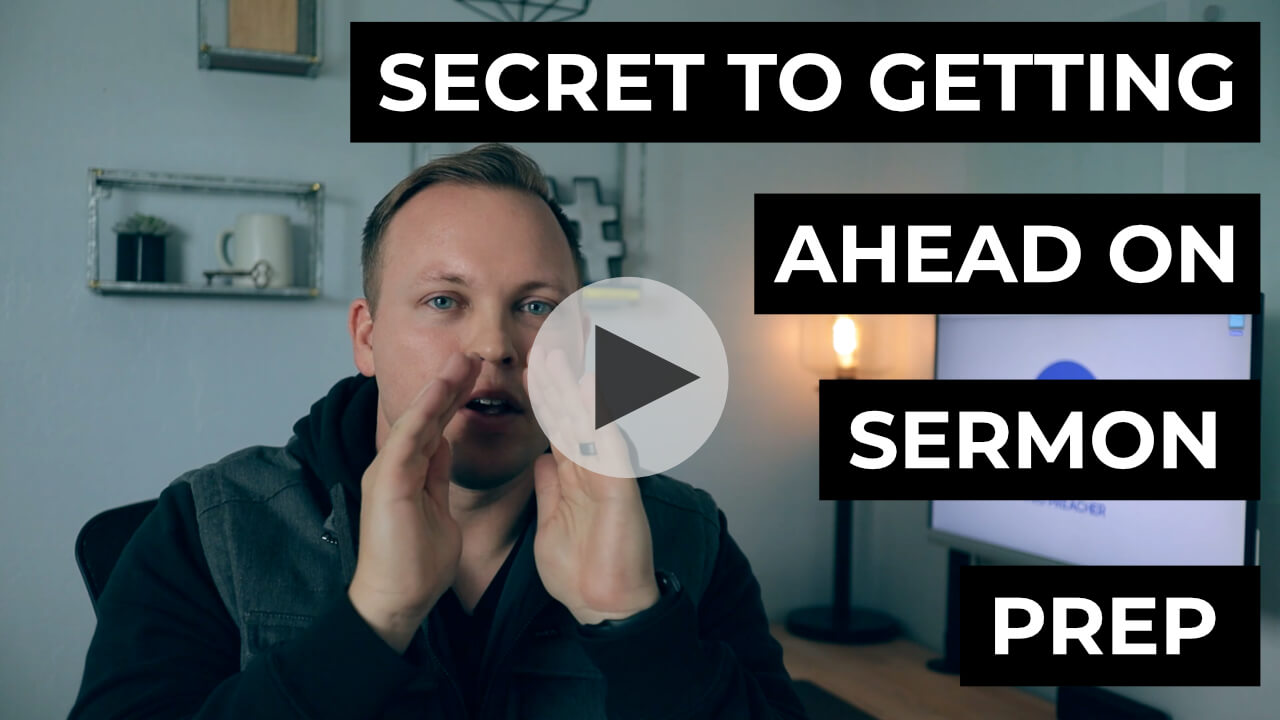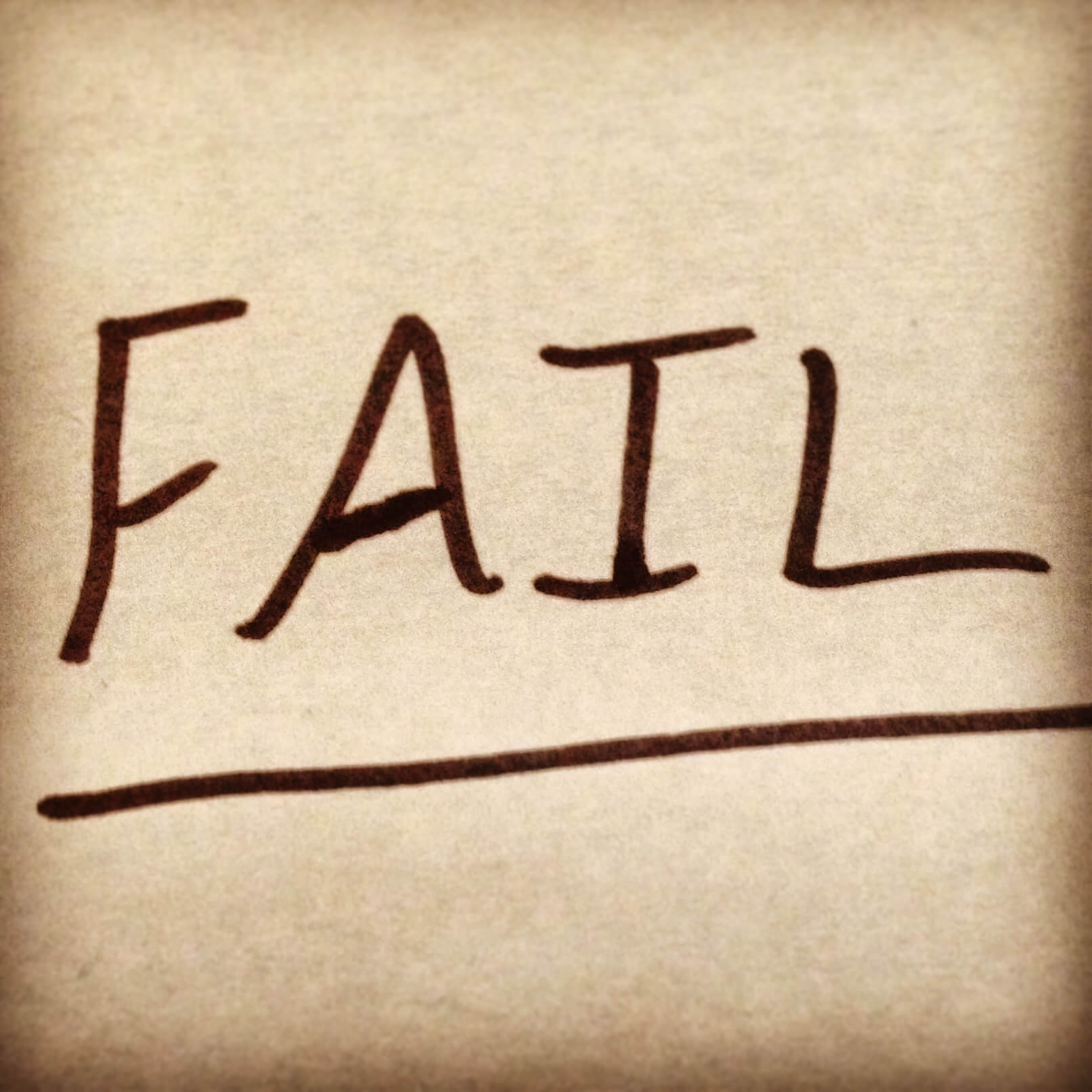Why Sermon Notes Are Like Training Wheels
When you first learned how to ride a bike, you probably had training wheels.
They’re a great tool to get you started, but what if you never took them off? You’d never experience the joy of what riding a bike was meant to be.
Well, I believe sermon notes are like training wheels for your preaching. Watch this video (or read the transcript) to find out why. Plus, I’ll give you a few tips on how you can preach better.
Transcript
Do you remember what it was like learning how to ride a bike for the very first time?
If you’re like most people, you probably had training wheels. You know, those little wheels that hang off the side of the back of the bike so when you’re riding your bike, you can wobble a little bit to the right and to the left and you don’t fall over because those wheels catch and keep you up.
Well, a few years ago I was taking my daughter out for a bike ride. I was teaching her how to ride a bike for the very first time.
She had had training wheels for many years and it was time for her to finally be pushed enough to say, “Hey, you can learn how to ride a bike without training wheels.”
She was absolutely terrified. All she had ever known for her whole life was training wheels. And she knew that as long as those wheels were on there, she was safe.
But taking the wheels off and trying to ride without it, that was risky. And like most parents, what I did with my daughter is I took the wheels off, and I got her up on the bike. And we found a basketball court that was near our house at a nearby park.
And I got her on her bike, and we set up on the basketball court, and I said, “Hey, don’t worry. I’m just gonna hold on to the back of the seat. I’m gonna hold on to you. You’re not gonna tip over. I will keep you safe. I just want you to practice peddling without the wheels on. But don’t worry. I’ve got you.”
And so I held onto my daughter. And she was riding her bike around, and I’m holding on to her
She’s wobbling a little bit, I’m catching her, and she’s all good. And then, I did what a lot of parents do—the trick of teaching your kids how to ride without training wheels.
After a while, she was getting more and more steady. I let go.
And she was riding along, and she didn’t even realize it at first. And she was doing pretty good, but then her eyes open, and she looks, and she realizes nobody’s holding onto me anymore.
And immediately, she crashes. I reached out to catch her, and I break her fall a little bit so she doesn’t completely just smash it in the ground. But she’s terrified. She didn’t want to get back on the bike. So I pushed her.
I was like, “Hey, you gotta get back on the bike. You gotta get back up there. You’ve got to keep going. You’ll never know what it’s like to ride a bike if you don’t just get back up and keep trying.”
So she got back on the bike, and she practiced again, and she fell over again. She practiced again; she fell over again. And I kept catching her to make sure she was okay.
But eventually, all of a sudden, as she’s riding this bike, she gets it.
Something clicks, and all of a sudden, she kind of gets that muscle memory going, and she kind of figures out her balance. And before long, she is riding in circles around this basketball court with the biggest smile—just the greatest smile on her face. So happy because she’s finally riding a bike without the training wheels on.
So, why am I telling you his story? Here’s why:
Sermon Notes Are Like Training Wheels
For pastors, our notes are like training wheels. We hold up our notes, and we rely on them to keep us safe—to keep us from falling over.
They keep us from making mistakes, from messing up our sermon. They’re the safety net. They’re the thing that keeps us comfortable.
As long as I have my notes, I know that I’m not gonna stray too far from the path.
As long as I have my notes, I know that my sermon is gonna be okay. I’m not gonna completely forget I’m not gonna completely get up there and draw a blank.
We all have that fear, right? The fear of getting on stage, and completely drawing a blank, and having no idea what to say—just staring wide-eyed at your congregation. Like, “Uhhh…”
So these notes become a crutch for us.
And here’s the deal: Just like riding a bike, if you never take off those training wheels, you’ll never experience the joy of riding a bike the way it was meant to be. And if you’re never are able to put your notes down, you’ll never experience the amazing joy and the power of what preaching is supposed to be.
Benefits of No Notes
You see, there’s a lot of benefits to not having notes.
Without notes, you’re gonna have better eye contact. You’re gonna actually be able to look at your audience in the eyes as you’re speaking to them.
Without notes, you’re gonna be able to walk around the stage a little bit more.
You’re gonna preach a little bit more from the heart. It’s gonna be less rehearsed and a little less robotic, and you’re gonna sound more natural, more authentic—more real.
What you’re saying is to just come more from inside, and less from something that’s rehearsed and prepared.
Without notes, your hands are gonna be more freed up to make gestures, to speak with your hands—to be a little bit more engaging and entertaining on stage.
And I know sermons are not just about entertainment, but it doesn’t hurt to have a little extra movement, a little bit more of something to keep your eyes trained on stage by moving around.
If I’m moving around, you’re probably looking more at the screen than if I were there just talking and not moving—no gestures.
And without notes, you’re gonna have a little bit more room for those promptings of the Holy Spirit that you get sometimes when you’re preaching.
You probably know what I’m talking about. Sometimes the best moments in your sermon are not the ones that you prepare for in advance. But as you’re preaching, as you’re in the moment, God just gives you this thought. The Holy Spirit just gives you this point that you need to make.
And that little tangent, that little side thought, or that little note that you hadn’t prepared before but just spontaneously comes out, that ends up becoming the most powerful part of a sermon. Or that ends up becoming the thing that you say that get comments afterward about how it spoke so deeply to so-and-so, or how that one person just really needed to hear that thing today.
And those things come more naturally when you’re speaking naturally. You’re less rigid and you’re less tied to exactly what you’re going to say word-for-word, line-by-line.
Notes can be a helpful tool but too many pastors rely on them like training wheels, and it shows.
They can’t be spontaneous. They can’t lock eyes with the audience. The can’t walk around on the stage, because their eyes are anchored to the notes.
Now, that doesn’t mean you have to completely throw away notes.
Not All Notes Are Bad
Whenever I preach a sermon, I’m still writing out a word-for-word manuscript of what I need to say.
I just find that when you write down what you’re thinking—when you write down your thoughts and the things that you’re studying—when I write it down in a word-for-word manuscript style format, it really helps me untangle my thoughts.
It helps me add clarity to my thinking. And there’s something about the power of the written word that really helps you hone in on what you want to say, say clearly, and say it right.
And so that’s all good, and that’s all great in the preparation part. But when you read it word-for-word, that’s when it becomes a problem.
So what I recommend doing is to go ahead write that manuscript. Go ahead and have all those notes that you take as you’re preparing your sermon.
That’s awesome. That’s all part of the preparation.
But when I get on stage, what I like to do is I just like to have one page of bullet points—few notes, a few things that I want to make sure I hit—but not a full word-for-word manuscript that my eyes are stuck to, that I’m reading line by line.
That way, I have a little bit of something I can fall back on. I can still look at a few things if I need to. Ir if I get lost, I can look back down at the page and find where I’m at and what I wanted to say next, and then my jar of thought of, “Oh, okay. That’s what I want to say. Oh yeah, that’s what’s going next.”
And so, when you understand the thoughts that you want to get across—not just word-for-word—you’re not gonna ever say it perfectly; But you’re gonna say it more from your heart.
And you can still get the point across. Just internalize the message, to let it soak in and saturate your life—to sink deep in your heart—so when you stand up on stage, that message has been welling up inside of you.
You’ve gone over it so many times it just burst out of you.
And when you do that, you’re gonna preach from the heart. You’re gonna be more powerful. You’re not going to be as eloquent with every little word, and every little punctuation mark, but I guarantee you that it’ll be a more natural, authentic delivery from the heart—where you’re engaged with your congregation, you’re engaging the people with your eyes and with your whole body, and not just engaged with a piece of paper on a podium.
You’re gonna preach with more power, with more effectiveness, and it’s gonna change more lives.
And that’s really what it’s all about, isn’t it? Communicating. Getting ideas, and thoughts, and the message that God has for his people across to them in a real way that changes hearts and minds.
And that’s what you do when you’re preaching without notes.
Sermon notes are like training wheels on a bicycle. You need them at first, and a lot of beginners are gonna have them as they go. But you will never experience what preaching is meant to be, and the power that it can have if you’re tied to them all the time.
So here’s my question for you:
Are you still stuck to those training wheels?
Are you still tied so much to your manuscript that your sermon is a little stale and less authentic?
If so, get the wrench out, take those wheels off. whittle down your manuscripts to a smaller outline.
Whittle it down to less notes. Rehearse it beforehand. Practice it over and over again. And then deliver it with all you’ve got.
Give it a try. Just one time. See what you think.
I guarantee you, if you do this, it’s going to take a little bit more work, it’s not going to be as easy, but it will be more effective.
So thanks for watching. I hope you found this helpful.
Until next time, keep on preaching.







Thank you